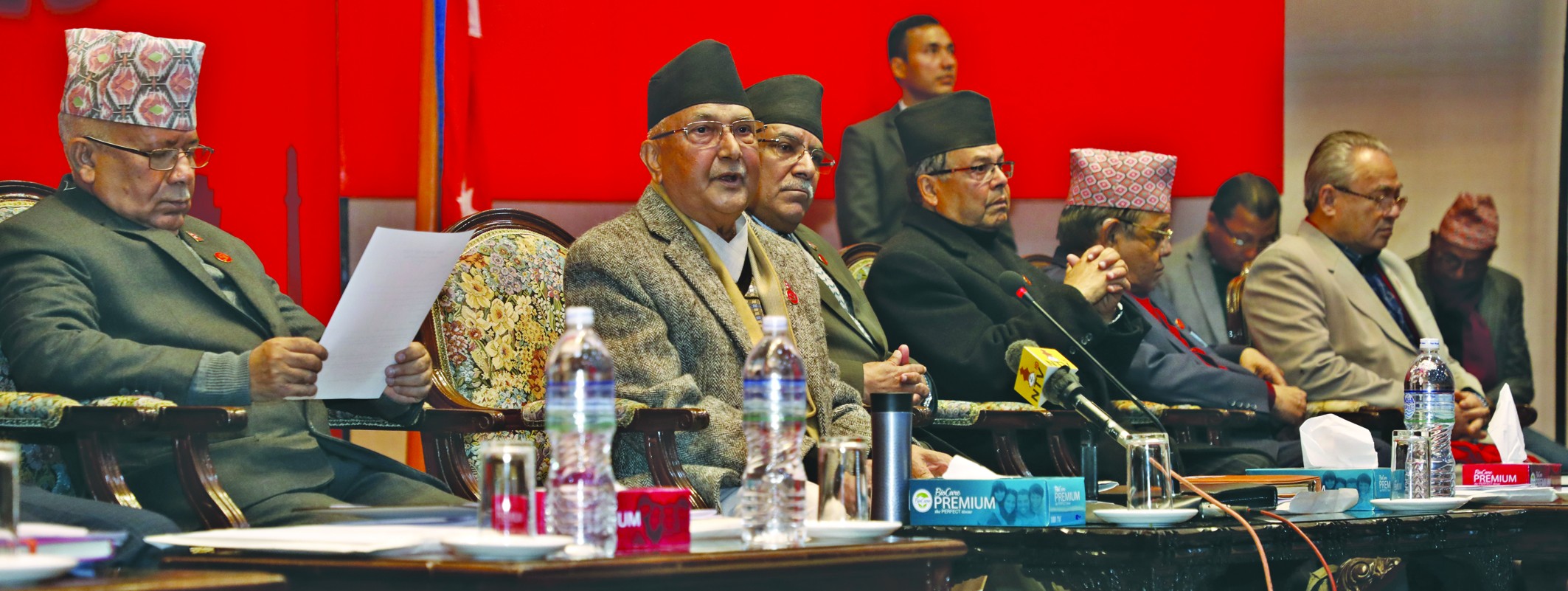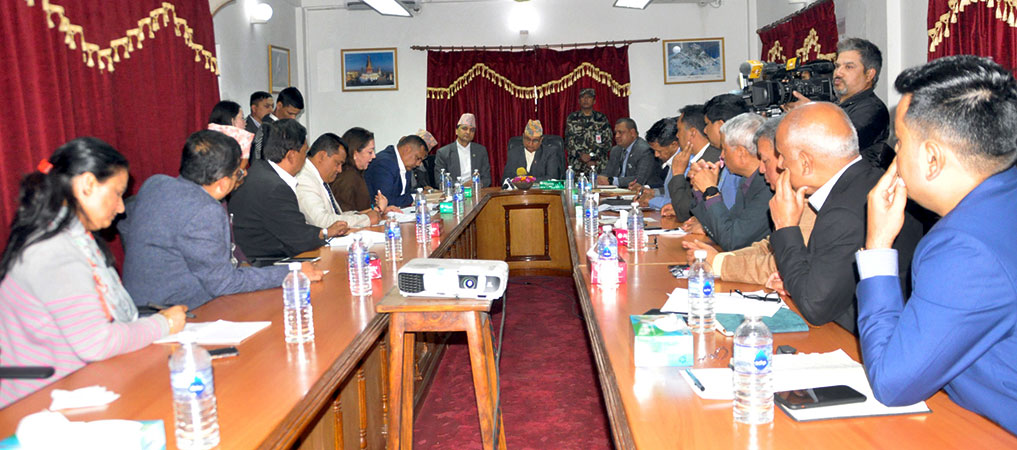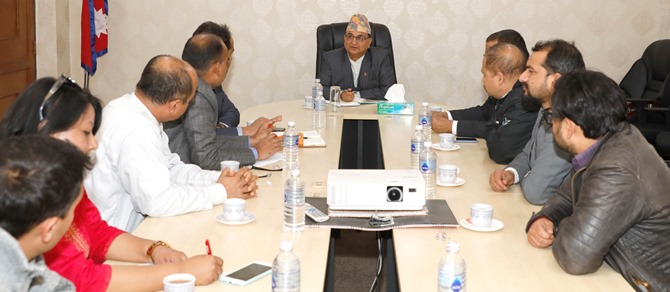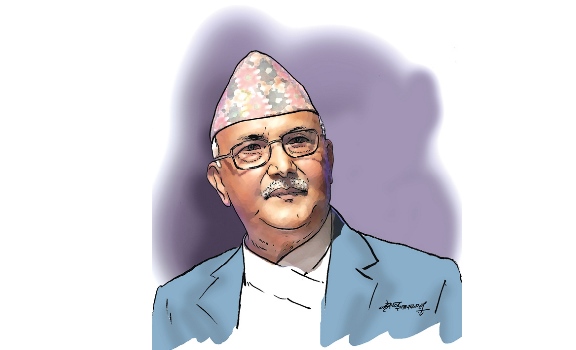Parents face ordeal to find match for children
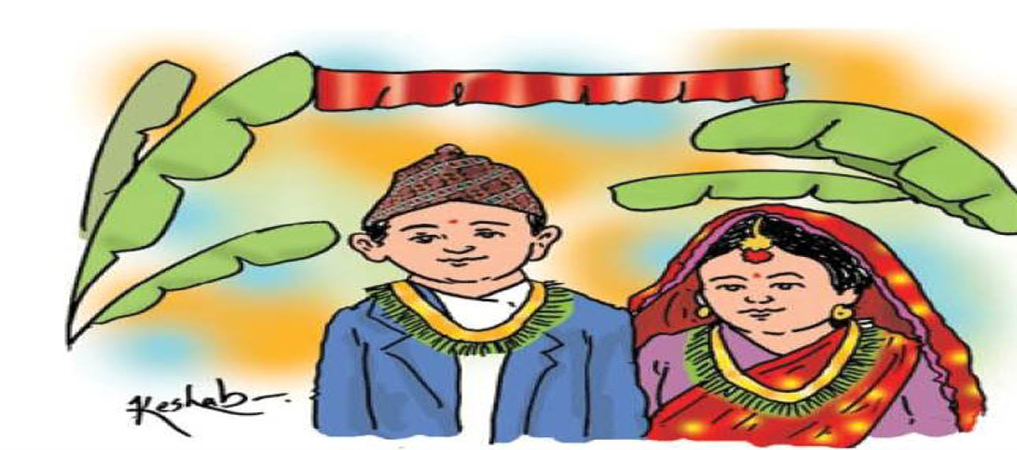
By Arpana Adhikari
Kathmandu, Mar :1 Marriage is central to the Nepali society. Arranged marriage is understood as a marital union where the families of the bride and groom decide on the match based on a number of socio-economic criteria rather than the couple choosing their own partner.
Nepali families still prefer marriages arranged within their caste and religion and don’t want to break these rigid boundaries.
However, arranging marriage is not easy for the parents these days. They are facing a hard time to find appropriate spouse for their children.
Since the love marriages, including inter-caste marriages, are becoming more popular than they once were, it leaves fewer marriageable girls and boys of the same caste that parents of boys and girls seek.
Rameshwor Sapkota, 56, of Dhapasi who has successfully arranged three dozen marriages in his lifetime said because love marriages are becoming more common and more acceptable, it is getting tougher for the parents and lamis (middle men) to find appropriate bride and groom which match with their socio-economic criteria.
Sapkota, who is a teacher by profession, said he has been working as a lami in hope of earning goodness. But lately parents and lamis are facing a tough time in finding suitable spouse for girl and boy for marriage.
Roshna Thapa, a mother of a boy in his late 20’s, is busy these days asking her relatives and friends to seek a suitable bride for his son, who is settled in USA.
“It’s already been a year, but I am still searching for a suitable girl from our community. All the eligible girls from within my circles are already engaged. This is not just about my son, some of our relatives are getting it hard to find perfect matches for their children,” she added.
The society is evolving so is the concept of an arranged marriage. An arranged marriage does not hold much attraction among the young generation anymore, she added. Like Thapa, Ram Krishna Maharjan of Bhaktapur has been seeking groom for his 26-year-old daughter. But as the love marriages widely prevail in his community, he and some of his relatives are facing a hard time to find matches for their children.
“Arranged marriages just don’t involve finding partners for marriageable boys and girls, but they also involve finding prospective partner for boys and girls that matches their caste, cultural background, educational qualifications and social status, so that they can adjust well in each other’s family,” said Rameshwor Sapkota.
But lately, due to growing number of love marriages, it is hard to find prospective partner for marriage that matches all their socio-economic criteria, he said.
“Since last five months, one of my relatives from a Brahmin community is looking for a girl for their son who is an engineer. The boy earns handsome money and works in a reputed company. But his family failed to find a girl who matches their caste and his qualification,” said Sapkota.
“I have noticed this problem in Bhramin, Chhettri and Newar community as well,” said Sapkota adding that, “I may sound irrational, but qualified girls and boys get reserved before they reach marriageable age. This has resulted in fewer single girls and boys in the community.”
Attending a wedding party on Friday night, Reshma Shah of Dhangadi was sharing with her friends that she had asked her daughters to find partner on their own because finding perfect matches for kids was not easy for the parents these days.
Shah said, “I have noticed people having a hard time finding spouse for their children. This is why I told my daughters to find their partners. This is the trend and I am asking my daughters to follow suit.”
Since the definition of marriage is changing gradually, the day is not far when parents have to be worried when their marriageable children don’t fall in love.
Nepal has played host to arranged marriages since ancient time. But in this world of technology and growth, arranged marriages are slowly losing charm in the cities. Historically most marriages have been arranged marriages. Until some years ago, love marriage was considered as rarity and an exception, said culture expert Prof. Dr. Beena Poudyal.
She said parents finding someone for their children is better because the families evaluate each other and marriages happen only when the two families are compatible with each other.
While in love marriage individuals know each other already and mutually decide to spend the whole life with each other. In Nepali, couples opting for love marriage are responsible for its choice and responsible for the blame in future lies on themselves.
Both the arranged and love marriages have their own merits and demerits, she added.
Dr. Poudyal considered the situation as a cultural transition, the process of shift from one culture to another. This transitional phase would be gradually resolved within a certain period of time.
“Inevitably, it will be more difficult to arrange marriages in future. But once the society will accept this changing trend of marriage, people will gradually break rigid boundaries (caste, culture and religion) of marriage,” she added.
Recent News

Do not make expressions casting dout on election: EC
14 Apr, 2022
CM Bhatta says may New Year 2079 BS inspire positive thinking
14 Apr, 2022
Three new cases, 44 recoveries in 24 hours
14 Apr, 2022
689 climbers of 84 teams so far acquire permits for climbing various peaks this spring season
14 Apr, 2022
How the rising cost of living crisis is impacting Nepal
14 Apr, 2022
US military confirms an interstellar meteor collided with Earth
14 Apr, 2022
Valneva Covid vaccine approved for use in UK
14 Apr, 2022
Chair Prachanda highlights need of unity among Maoist, Communist forces
14 Apr, 2022
Ranbir Kapoor and Alia Bhatt: Bollywood toasts star couple on wedding
14 Apr, 2022
President Bhandari confers decorations (Photo Feature)
14 Apr, 2022


